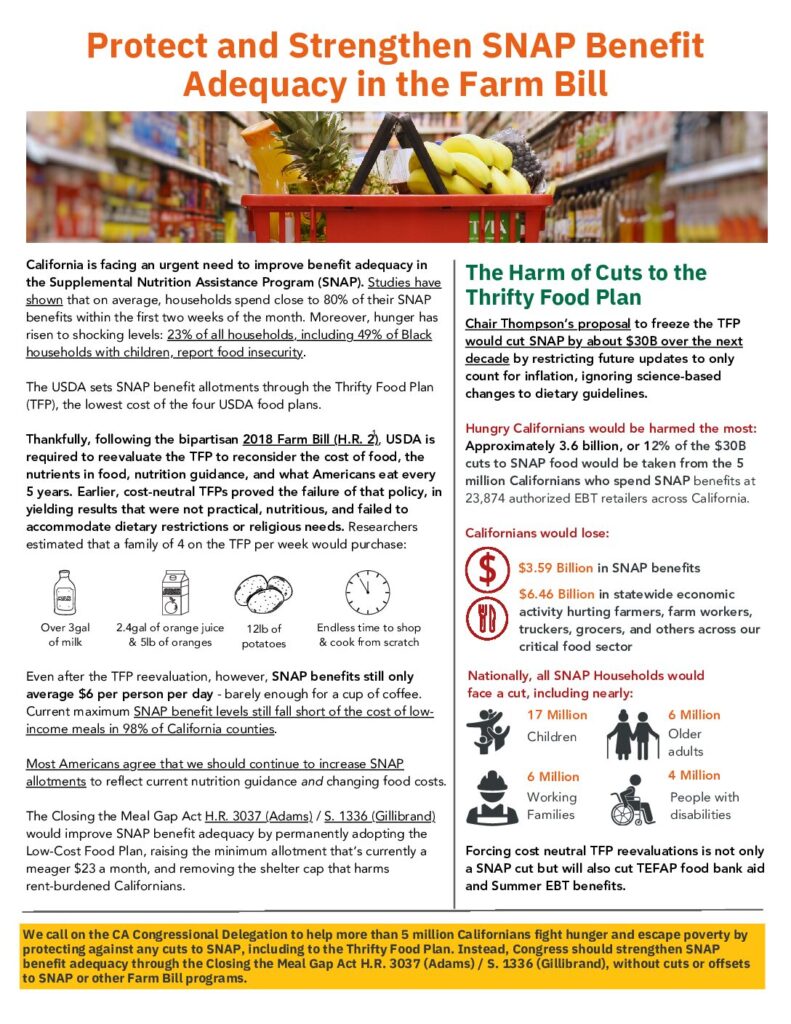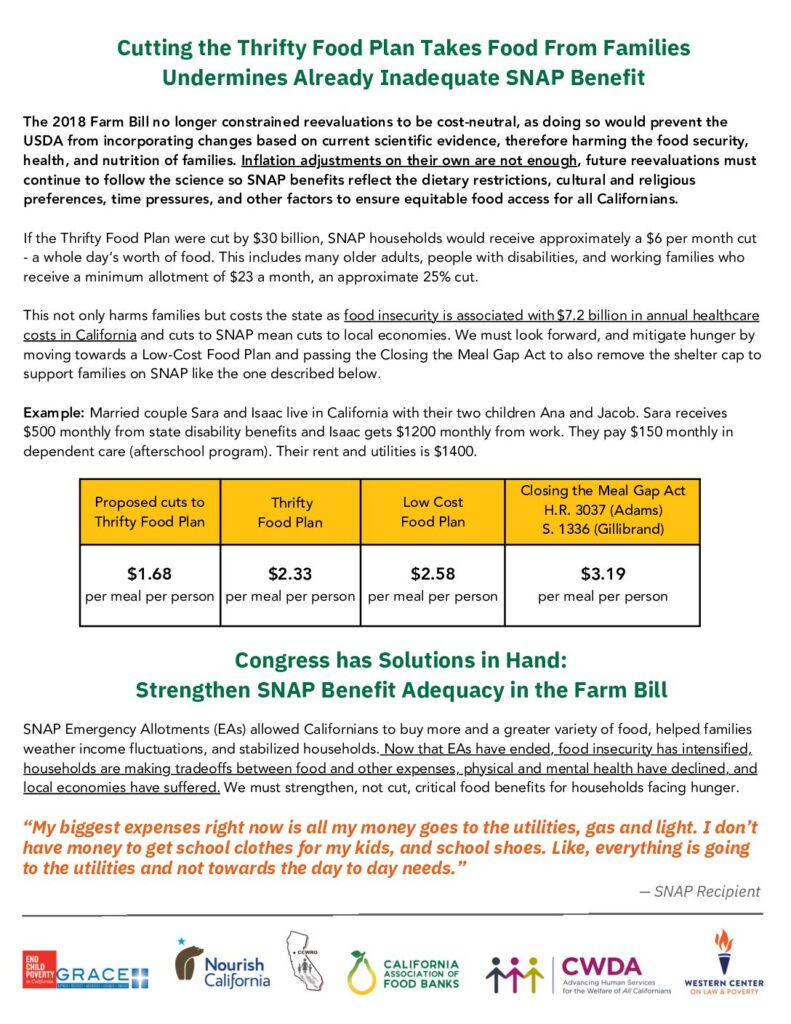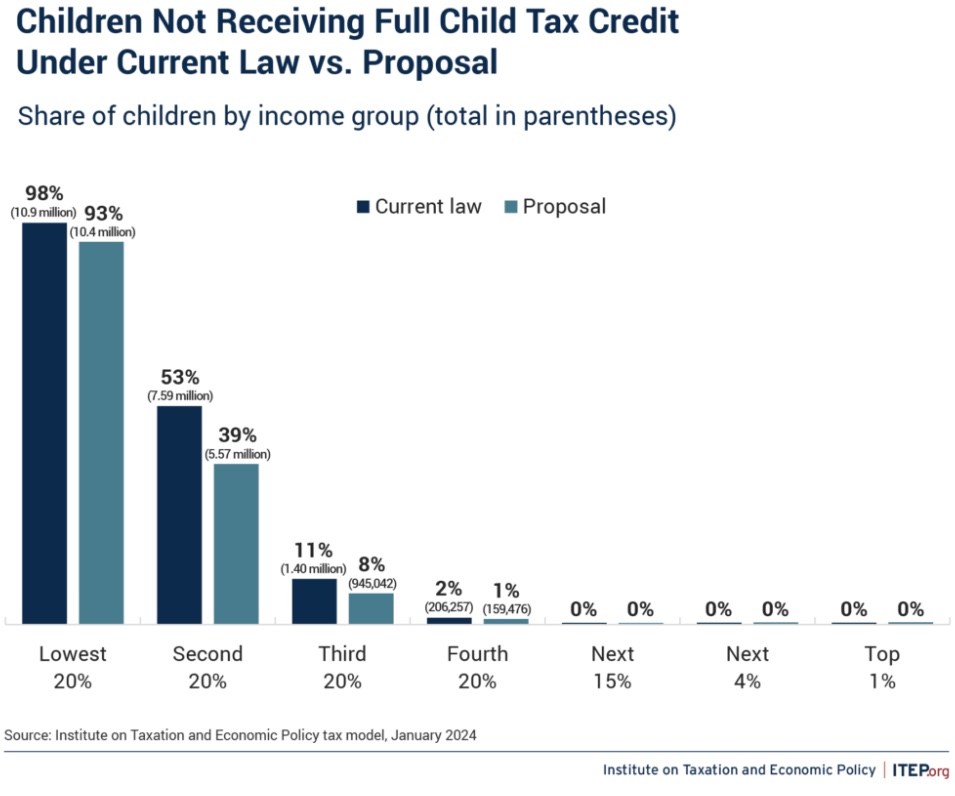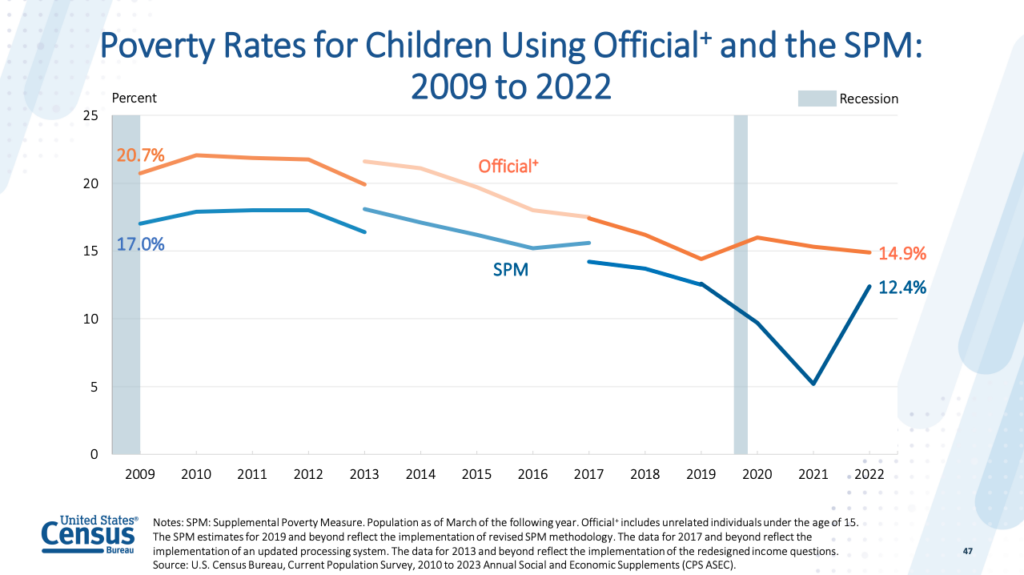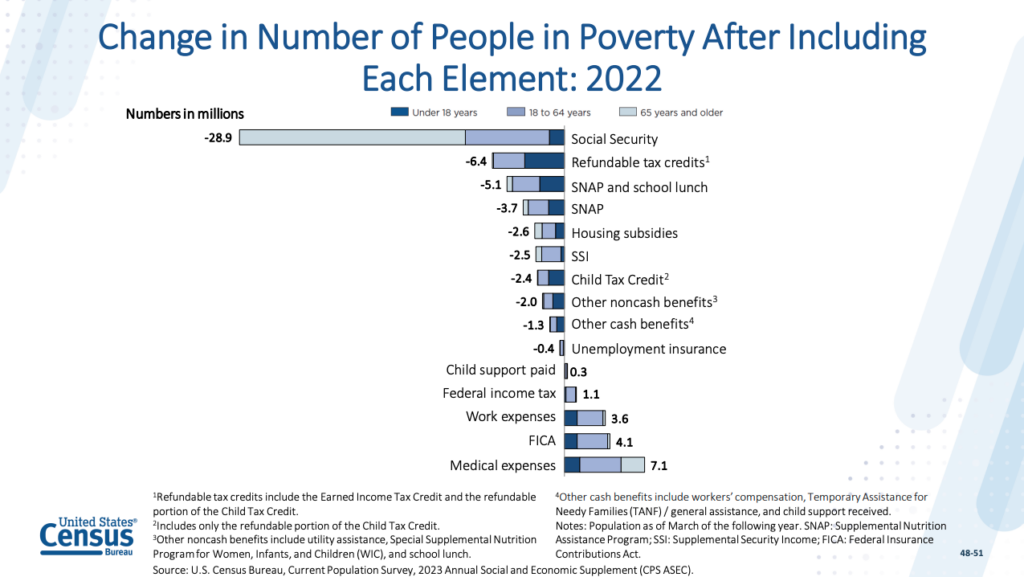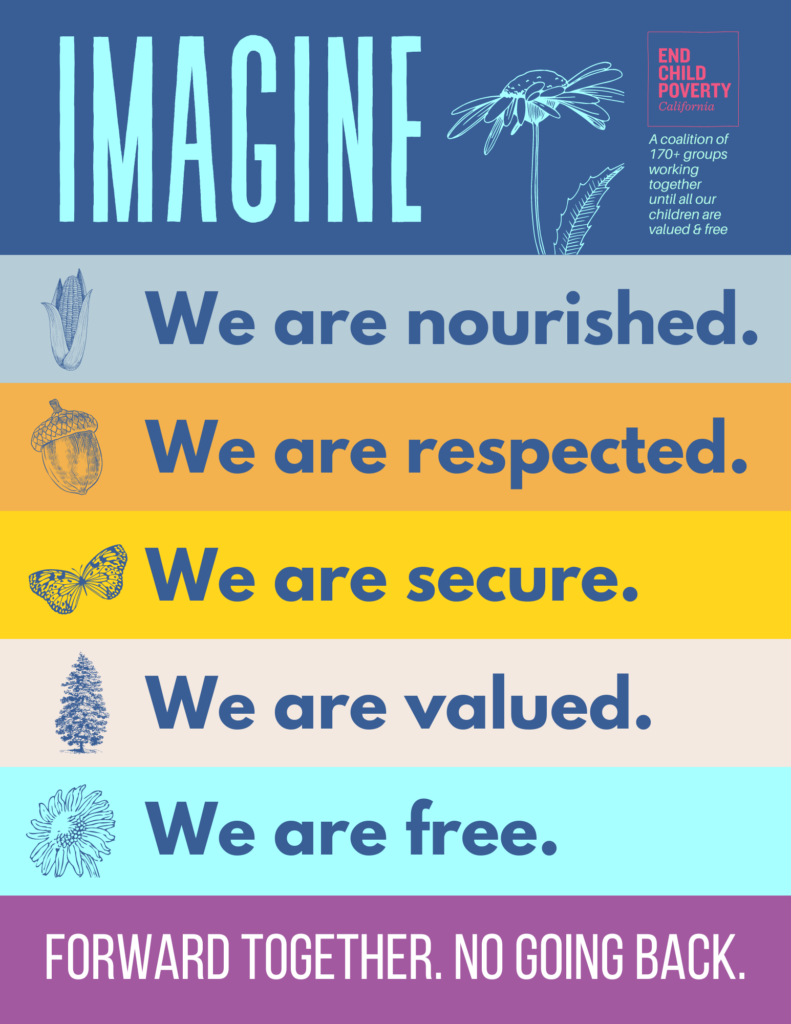California Still Has The Highest Child & Family Poverty Rate of Any State
Bold revenues and investments are long overdue
The U.S. Census Bureau recently released data from 2023 on poverty, income, and health from its Current Population Survey. The data confirmed what we unfortunately had anticipated: California still leads the nation in having the highest poverty rate, and poverty continues to rise given that several successful interventions expired and have not yet been restored.
According to analyses conducted by the California Budget & Policy Center on the Supplemental Poverty Measure (SPM), California’s poverty rate rose to 18.9% in 2023, up from 16.4% in 2022 and nearly double the 11.0% in 2021. California has consistently outranked all other states in poverty for years, which still holds true for 2023, largely due to our high cost of living. California needs robust revenues and investments in children, immigrants, and low-income households, who are struggling to meet their basic needs. Poverty is a policy choice.

In California, Supplemental Poverty Measure (SPM) data shows that:
- Child poverty increased from 16.8% in 2022 to 19.2% in 2023. This spike can be attributed to the sunsetting of powerful poverty-fighting programs like the expanded child tax credit.
- Although poverty rose for Californians of all ages, poverty is highest for adults ages 65 years and older at 20.6%, mostly due to higher out-of-pocket medical expenses.
- Already stark and unacceptable racial and ethnic inequities grew as 22% of Black families and fully 1 in 4 Latine families experienced poverty – nearly double the poverty rate for white families (13.0%).
- The largest 1-year increase from 2022 was among American Indian, Alaska Native, Native Hawaiian, Pacific Islander, and multiracial Californians. Spiking from 8.4% in 2022 to 13.6% in 2023, it is clear that limited access to resources coupled with the compounding effects of the pandemic disproportionately harms Indigenous and multiracial communities.

Federal data reinforces that children and communities of color bear the brunt of expired pandemic-era social safety net expansions
- Marking another consecutive annual increase in the SPM, poverty in the U.S. rose to 12.9% in 2023, up 0.5 percentage points from 2022.
- U.S. child poverty rose to 13.7%, up 1.3 percentage points from 2022.
- SPM rates for Latine, Black, and Asian children continued to rise, while non-Hispanic white children did not see a significant change between 2022 and 2023.

The data underscores the urgent need to raise revenues and invest in our children and families
The data highlights windows of opportunities for state and federal governments to lift children and families out of poverty and into lives where they feel valued, secure, and free. Yet, policy blueprints for combating child and family poverty already exist. The federal and state governments successfully cut poverty in half in 2021 with the rollout of the enhanced Child Tax Credit, SNAP/CalFresh emergency allotments, and Pandemic EBT.
According to the California Poverty Measure published by the Public Policy Institute of California, about 3.2 million more Californians (8.4%), including 1.3 million (14.9%) children, would have lived in poverty if not for safety net programs in early 2023. Without CalFresh, child poverty in California would have increased by 5%. Likewise, the federal Earned Income Tax Credit (EITC) and federal Child Tax Credit (CTC) kept 2.3% and 1.9% more Californian children out of poverty, respectively.

State and federal investments should be allocated towards:
- Lifting the minimum CalEITC to $300, and making the Young Child Tax Credit available for all CalEITC-eligibile families.
- Reimagining CalWORKs to be family-centered, anti-racist, and provide real pathways out of poverty.
- Strengthening continuous coverage for children and families enrolled in Medi-Cal (Asm. Boerner).
- Providing Food 4 All Californians as SB 245 (Sen. Hurtado) and AB 311 would do (Asm. Santiago).
- Ensuring that all eligible families and children receive the CalFresh statewide minimum $50 benefit (Sen. Menjivar).
- Improving SNAP benefit adequacy as the Closing The Meal Gap would do (Rep. Adams).
- Achieving nationwide child nutrition access as the Universal School Meals Act and Stop Child Hunger Act (Rep. Levin) would do.
Unless bold and intentional policy actions are taken, California will continue to outrank all other states in poverty every year. As the fifth largest economy in the world, California has an opportunity to build on its past successes and ensure that the state’s abundance of wealth and resources are shared equitably. We call on our state and federal policymakers to raise revenues and make equitable investments to reach the Governor’s North Star of ending child poverty, which we know is within our grasp.
Access a PDF of this blog post here


